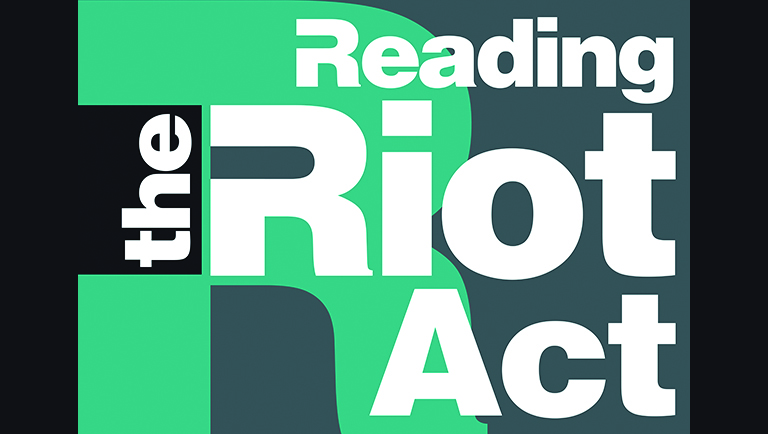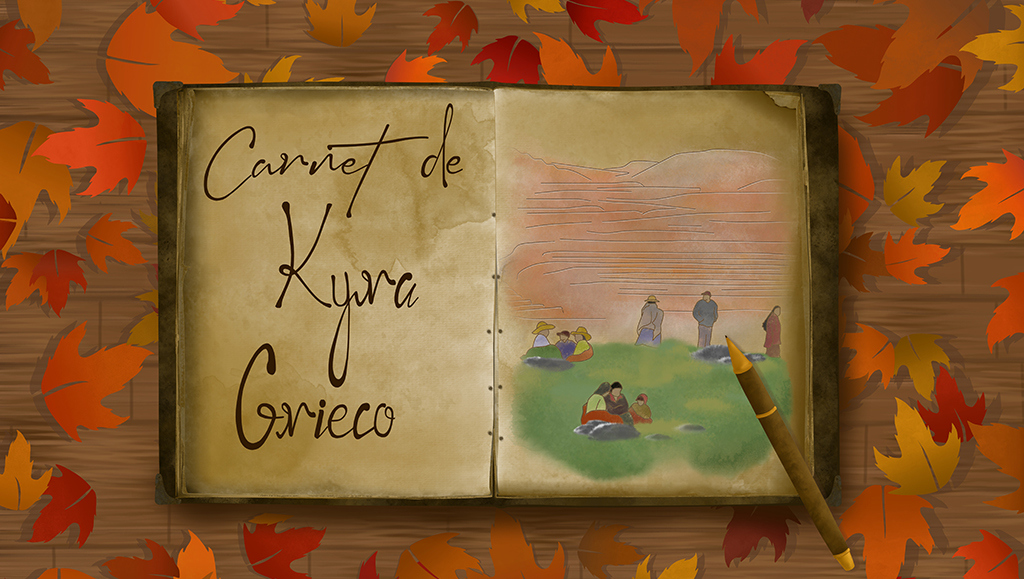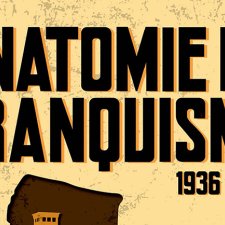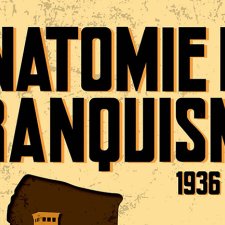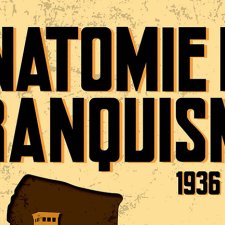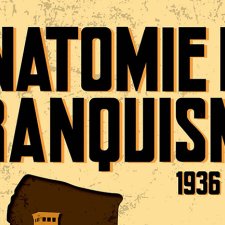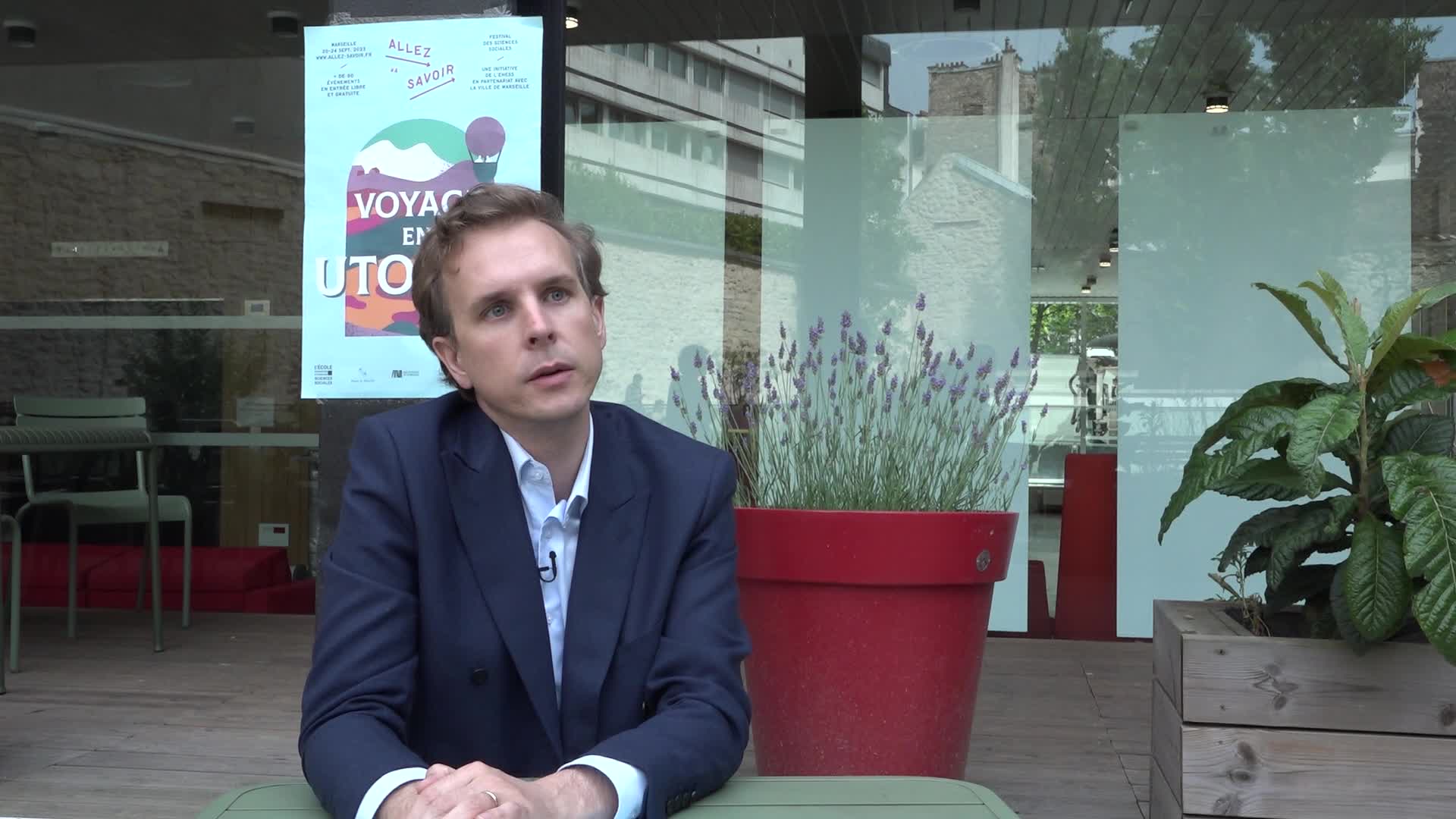Notice
Maison de l'Image et du Numérique, Université Toulouse - Jean Jaurès
The Newport Rising, 1839 / Reading the Riot Act #3
- document 1 document 2 document 3
- niveau 1 niveau 2 niveau 3
Descriptif
I talk to Matthew Roberts, a historian of Chartism at Sheffield Hallam University, about the Chartist rising which took place in Newport, South Wales, in November 1839, just after Parliament had rejected the first national petition for the People’s Charter. Chartism was a mass, working-class movement for democratic reform which emerged in industrialising Britain in the late 1830s. We discuss how armed resistance came to be employed, why such a strategy emerged in Newport and the broader implications of the revolt for the Chartist movement.
Matthew Roberts, historien et spécialiste du mouvement chartiste de l’université Sheffield Hallam en Grande-Bretagne, nous parle du soulèvement chartiste qui a eu lieu à Newport, dans le sud du Pays de Galles, en novembre 1839, suite au rejet par le Parlement britannique de la première pétition nationale en faveur de la Charte du peuple. Le chartisme était un mouvement de masse de la classe ouvrière qui est né en Grande-Bretagne à la fin des années 1830, au moment de la Révolution industrielle. Nous évoquerons ici les raisons pour le recours à une stratégie armée dans la ville de Newport. Nous nous pencherons également sur les répercussions plus générales de la révolte dans le cadre du mouvement chartiste, un mouvement démocratique pour la réforme parlementaire.
Intervention / Responsable scientifique
Avec les mêmes intervenants et intervenantes
-
The Peterloo massacre, 1819 – Reading the Riot Act #4
PooleRobertRogersRachelSpecialist of Lancashire radical culture in the early 19th century, Robert Poole provides context to and explanation of the events that took place in Manchester on 16th August 1819. Eighteen people
-
19th-century protest movements through the prism of ‘radicalism’
RogersRachelDans le cadre de la Journée d’Études "Protest Movements in Britain in the 19th and early 20th centuries : debates and perspectives".
-
The Luddite protests, 1811-12 / Reading the Riot Act #2
RogersRachelNavickasKatrinaIn this episode, the focus is on the ‘Luddite’ movement of 1811-12 when machine-breaking actions proliferated in the English cloth-making counties of Nottinghamshire, Lancashire, Cheshire and
-
The Gordon Riots, 1780 / Reading the Riot Act #1
RogersRachelHaywoodIanThis episode looks in depth at the Gordon riots which took place in London in June 1780. What has often been seen as an anti-Catholic protest, occurring when Britain was fighting to retain its prized
Sur le même thème
-
The Peterloo massacre, 1819 – Reading the Riot Act #4
PooleRobertRogersRachelSpecialist of Lancashire radical culture in the early 19th century, Robert Poole provides context to and explanation of the events that took place in Manchester on 16th August 1819. Eighteen people
-
Se laisser porter par la lutte / Carnet de passages #5
GriecoKyraPitzalisJuliaPeyrautLolaMontécotRobinPayssanAlexiComment jongler avec le danger du terrain ? Comment protéger ses interlocuteurs ? Au Pérou, Kyra Grieco a suivi la lutte des habitants de Cajamarca contre l’exploitation minière de leur région. Au fil
-
Edith Lanchester, an ‘over-educated’ socialist at the crossroads of fin-de-siècle protest movements
SippelAlexandraDans le cadre de la Journée d’Études "Protest Movements in Britain in the 19th and early 20th centuries : debates and perspectives".
-
‘The perfect liberal revolution’: British radicalism and the 1830 French Revolution
HaywoodIanDans le cadre de la Journée d’Études "Protest Movements in Britain in the 19th and early 20th centuries : debates and perspectives".
-
19th-century protest movements through the prism of ‘radicalism’
RogersRachelDans le cadre de la Journée d’Études "Protest Movements in Britain in the 19th and early 20th centuries : debates and perspectives".
-
The Luddite protests, 1811-12 / Reading the Riot Act #2
RogersRachelNavickasKatrinaIn this episode, the focus is on the ‘Luddite’ movement of 1811-12 when machine-breaking actions proliferated in the English cloth-making counties of Nottinghamshire, Lancashire, Cheshire and
-
Movimientos sociales, luchas de clases y cambio político
Domènech SampereXavierPor primera vez en Europa, el coloquio Anatomía del franquismo (1936-1977) ofrece una síntesis colectiva de los conocimientos sobre el franquismo, elaborada por historiadores e historiadoras.
-
El desafío obrero a la dictadura: protesta social y violencia política durante el tardofranquismo
Tébar HurtadoJavierPor primera vez en Europa, el coloquio Anatomía del franquismo (1936-1977) ofrece una síntesis colectiva de los conocimientos sobre el franquismo, elaborada por historiadores e historiadoras.
-
Mouvements sociaux, luttes des classes et changements politiques
Domènech SampereXavierLe colloque "Anatomie du franquisme (1936-1977)" proposait pour la première fois en Europe une synthèse collective des connaissances sur le franquisme, réalisée par les historiennes et les historiens
-
Le défi ouvrier à la dictature : protestation sociale et violence politique au cours du tardo-franq…
Tébar HurtadoJavierLe colloque "Anatomie du franquisme (1936-1977)" proposait pour la première fois en Europe une synthèse collective des connaissances sur le franquisme, réalisée par les historiennes et les historiens
-
Interview d'Emmanuel Jousse pour Allez Savoir #4
JousseEmmanuelEmmanuel Jousse est historien, maître de conférences à Sciences-Po Lyon.
-
Les temporalités de Slow : résistances, accélérations, crises
CentemeriLauraSiniscalchiValeriaZaskJoëlleConsalèsJean NoëlQue signifie slow dans les débats contemporains, dans les mouvements sociaux (Slow Food…), dans les critiques environnementales (Slow Emergency), dans la pratique médicale (Slow Medicine), dans la

